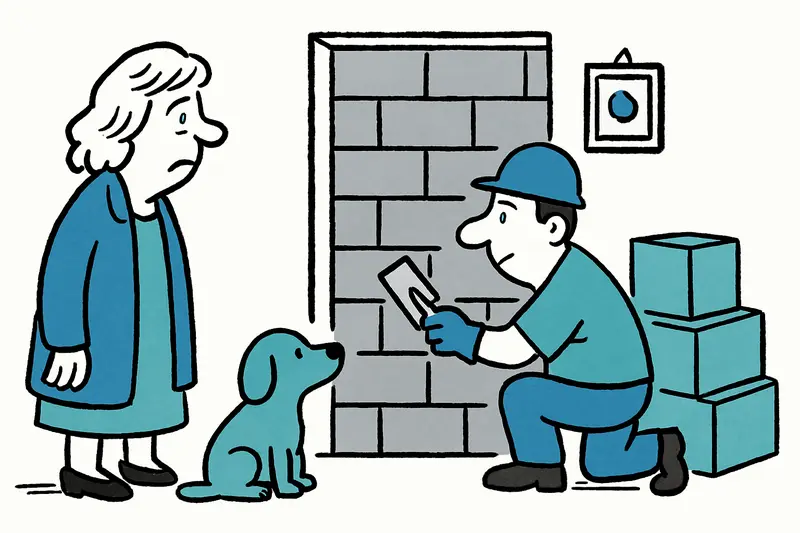In Palma, an elderly tenant was evicted from a basement room. Left behind were belongings in the hallway, an old dog, and many unanswered questions.
In the hallway, only boxes and a dog remain
Thursday afternoon on Joan-Miró Street: workers lay the final concrete slab in front of a door, a sign from the security company is mounted, and a woman in her sixties stands nearby, staring and not quite understanding. This is not a scene from a drama; this is city daily life.
The woman—let's call her Reina, because that's her name and because it feels right—has spent her life in one of the basement rooms. There was barely room for everything: a bed, a small table, a cooking stove, a lamp that sometimes flickers. Her dog Luna, blind and small, shuffled between crates until a neighbor picked her up. Anyone who saw this couldn't simply walk away.
Why does this happen?
Behind such evictions are often complicated stories: months of rent arrears, legal disputes, and owners enforcing their rights. In this case, locals say the process was quick, and many felt overwhelmed. 'The lawyer said on Tuesday the eviction would be on Thursday,' says an activist who was there before seven in the morning. Not a lot of time to organize.
The people living there are not faceless figures: delivery drivers, waiters from Santa Catalina, care workers, construction workers. They work—often in shifts—and still cannot find an affordable alternative in Palma. The number of emergency shelters is insufficient, and many decline the offer because they do not want to lose their small, barely furnished rooms.
Between horror and resignation
The scene was loud, tense and sad. Police, lawyers, representatives of a security company, an ambulance, activists with banners. A woman fainted, paramedics provided first aid. In the end, there remained a hallway full of boxes, a bricked-up entrance and questions that no one answered: Where should the people go now? Who will look after Luna? Who will pay for the furniture now standing in the corridor?
The city administration points to legal requirements and emergency shelters. Social organizations try to fill gaps, but are often overwhelmed. Neighbors bring water, a woman gives a blanket. Small gestures that at the moment barely suffice.
What remains?
This case is not an isolated incident. It stands as a symbol for a larger problem: rising rents, too little affordable housing, and people who, despite work, do not make ends meet. When the doors are bricked up, not only cement remains, but also disappointment—and a dog who misses a familiar smell.
In the evening I walked down the street again. The security company's plaque gleamed in the headlights. A neighbor spoke softly: 'Tomorrow is a new case.' That says more than any statistic.
Similar News

Die Zeit auf Mallorca: Warum die Uhren hier anders ticken
Auf Mallorca läuft die Uhr offiziell anders als die Sonne — ein Erbe aus den 1940er-Jahren, das bis heute unseren Alltag...

Orange Weather Warning for Mallorca: Heavy Rain and Thunderstorms Set the Week
Aemet warns: Monday and Tuesday on Mallorca are under orange alert. Heavy rain, floods, and traffic disruptions are poss...

Life-threatening swimming accident in Ibiza: 73-year-old revived on the beach
During severe storms, a 73-year-old visitor swam despite a red flag. Lifeguards rescued her, and she is now seriously in...

Mummified Body Found in Abandoned House Near Santa Margalida
Between Can Picafort and Son Serra de Marina, teenagers discovered a mummified corpse in an abandoned house. Identity an...

Large Rockfall Blocks Ma-2141 Road Near Sa Calobra
After heavy rainfall, several rock blocks toppled onto the winding Ma-2141 toward Sa Calobra over the weekend. The road ...
